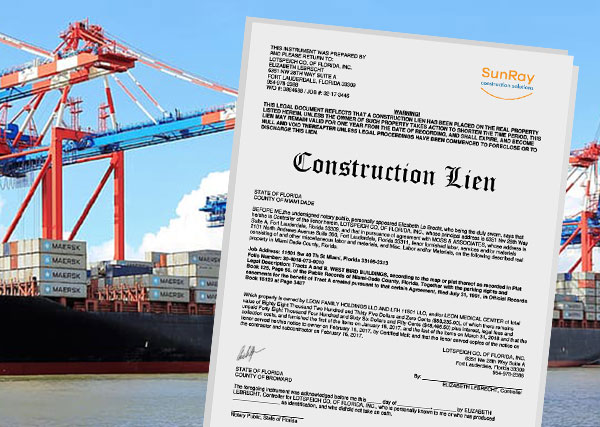Important Changes to California Home Improvement Contracts for 2026: What Contractors Need to Know
Learn how California’s 2026 contract law changes will impact your projects, and what you must update to stay compliant.
Last updated:
Nov
21
,
2025
Published:
November 21, 2025
3 mins
Read
Beginning January 1, 2026, major updates to California’s home improvement contract laws will take effect, reshaping what contractors must disclose and how agreements must be structured. These new requirements were created to offer homeowners greater transparency and protection. At the same time, they add significant obligations for contractors, who must update their contract templates to remain compliant and avoid disciplinary issues with the California Contractors State License Board (CSLB).
Below is a clear breakdown of the changes and what they mean for contractors, subcontractors, and project stakeholders.
New Subcontractor Disclosure Requirements
One of the most impactful changes for 2026 involves mandatory subcontractor transparency. Contractors must now notify homeowners if subcontractors will be used on the project. Upon request, the contractor must also provide detailed information, including the subcontractor’s name, contact information, license number, and license classification.
These disclosure rules apply not only to the original contract but also to any change orders. Every home improvement contract must now include a notice informing homeowners of their right to request subcontractor information at any time.
This new obligation significantly increases the need for documentation accuracy and internal communication. Contractors may also need to adjust their project management processes to ensure this information is readily available whenever a homeowner requests it.
Additional Contact Details Now Required in Every Contract
California now requires more complete contact information in home improvement agreements. Every contract must include the contractor’s phone number, the contractor’s email address, and the phone number of the contractor’s general liability insurance carrier.
California’s mandatory “Right to Cancel” form, which must accompany every home improvement contract, also must be updated to include the contractor’s email address.
Contractors who use older templates or rely on generic forms will need to revise these documents immediately to ensure they meet California’s updated statutory requirements.
.jpg)
Updated Right-to-Cancel Rules for Homeowners
California’s cancellation rules remain the same, with homeowners generally receiving a 3-day cancellation period or a 5-day period if the homeowner is 65 or older. However, the laws governing these notices have been updated to include email information.
These revised cancellation requirements apply to several types of sales:
- Standard home improvement contracts
- Phone-based sales
- Home solicitation sales
- Seminar-based sales
Given these changes, contractors should ensure that all versions of their agreements, cancellation forms, and sales procedures reflect the new requirements.
What Contractors Must Do Before January 1, 2026
While these changes are designed to protect consumers, they carry serious implications for contractors. Failure to update contract forms could result in CSLB disciplinary action, which may include citations, penalties, or more severe enforcement.
Contractors should also consider adding protective language to prevent homeowners from contacting subcontractors directly or from attempting to hire them separately. Since homeowners will now have all subcontractor details, clear contract language is essential to maintaining control over the project and reducing the risk of miscommunication or interference.
Consulting a construction attorney before updating your documents is strongly recommended. A legal review will ensure your contracts are compliant and that your business remains protected under the new regulatory framework.
.jpg)
Where to Review the New Laws
Contractors who want to understand the official legislative changes can review the statutory text directly. The new requirements are outlined in SB 517 and AB 1327, which together reshape disclosure, cancellation, and contact-information obligations for home improvement contractors in California.
You Can Read the New Laws Here:
If you want to read the official text, here are the links:
AB 1327 - https://legiscan.com/CA/text/AB1327/id/3267676
Stay Protected as Regulations Evolve
As state laws continue to evolve, staying informed is essential for avoiding compliance issues and safeguarding your payment rights. If you have questions about how these changes affect your lien and notice responsibilities, or if you need support ensuring your documents meet 2026 standards, SunRay Construction Solutions is here to help.












